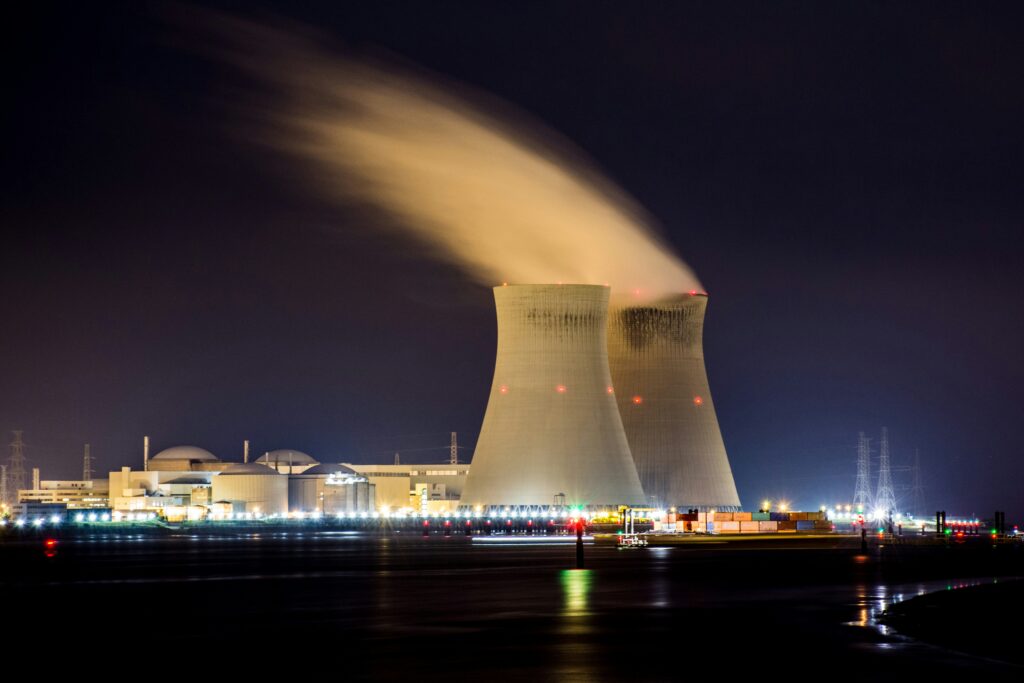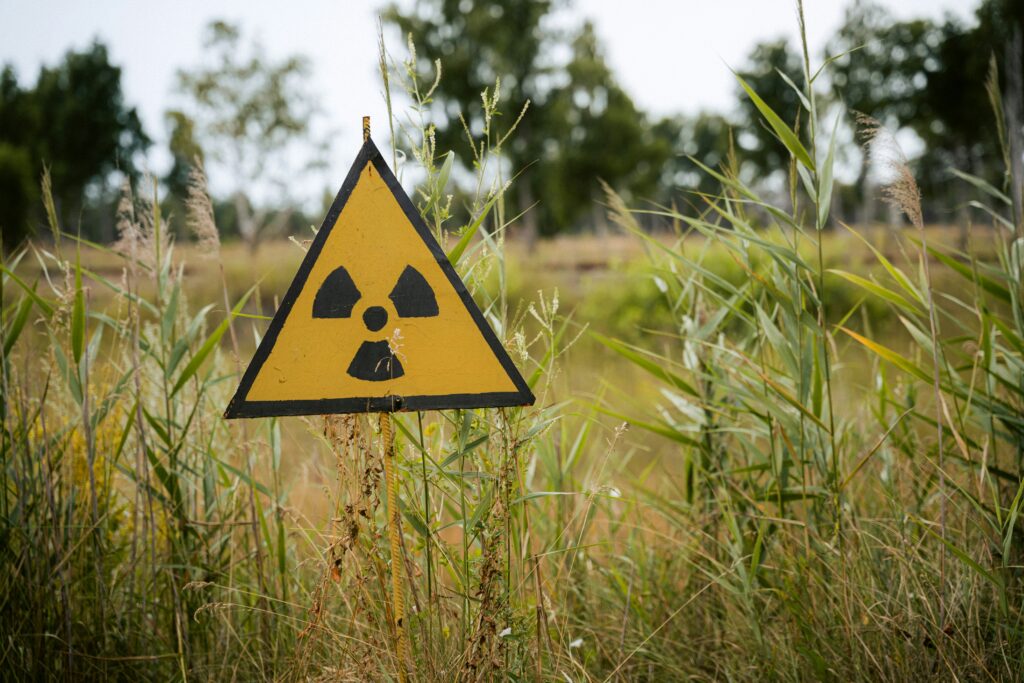The Nuclear Renaissance
As the world seeks to decarbonize, nuclear energy is gaining traction globally.
As the world grapples with the urgent need to transition away from fossil fuels and towards low-carbon energy sources, nuclear power is being increasingly considered a viable option globally, particularly in Europe. This shift is driven by several factors, including the need for energy independence, security of supply, and climate neutrality.
In this interview with Raphael Tsavkko Garcia from REVOLVE, Antoine Bizet and Marion Labatut delve into the key benefits of nuclear energy, addressing concerns around safety and waste management, and exploring its role in the global energy landscape.
Could you elaborate on why nuclear energy is being increasingly considered a viable option for energy production globally and particularly in Europe, and some of the key benefits of nuclear energy compared to other forms of energy production?
Antoine Bizet: We identified several levers to explain this ‘nuclear renaissance.’ The Russian war has made the need for independent supply much clearer. On that basis, several European countries decided to launch, or relaunch, their nuclear programs. This includes countries in Eastern Europe like the Czech Republic, Bulgaria, and Romania, as well as Northern Europe with Finland and Sweden.

Sweden is an interesting example, shifting from a 100% renewable electric mix to a 100% low-carbon electric mix. This trend is also seen in the Netherlands, Belgium, Italy, and France, of course. There is a significant shift towards nuclear supply for sovereignty and independence.
Marion Labatut: Another point is that nuclear power can deliver large amounts of electricity, which is crucial for the security of supply. Nuclear provides baseload and dispatchable electricity 24/7. This doesn’t mean we are against renewables; we consider the electric mix has to rely on both nuclear, for baseload and dispatchable capacity, and renewables. Climate neutrality is another important aspect. You may have heard about the debate regarding taxonomy and reports that helped the Commission make its decision.
There is a significant shift towards nuclear supply for sovereignty and independence
Antoine Bizet
One such report highlighted that nuclear is at or below 10 grams of CO2 per kilowatt hour (kWh), which is unparalleled by any other electricity technology. This is a significant advantage for achieving climate neutrality.
Antoine Bizet: Economic interest is also a key factor. Our clients are asking for an affordable and stable electricity supply, which nuclear power can deliver. There’s also a new political alliance launched by France and Spain. Additionally, there are two European examples of new nuclear capacity: Olkiluoto in Finland and Flamanville in France. These projects provide technological proof that new nuclear can be a solution.
How would you respond to the frequent criticisms against nuclear energy, such as safety concerns post-Fukushima and the issue of nuclear waste?
Marion Labatut: The nuclear industry is one of the most regulated, monitored, controlled, and transparent industries. For example, all reports from the French Safety Authority are public and published. This transparency means that safety is well-known and monitored. The real question about safety is the level of risk society is willing to accept. The safety of our power plants is the same as it was in past years, and it is increasing because of new improvements post-Fukushima. However, we live in a society where such risks are less and less accepted. That’s why transparency is crucial. The more transparent we are about the safety of our power plants, the more acceptable this residual risk becomes.
We live in a society where such risks are less and less accepted. That’s why transparency is crucial.
Marion Labatut
Antoine Bizet: Regarding waste, it’s similar. We are one of the few industries where all waste has a well-defined evacuation and handling process. In France, every piece of the nuclear power plant must be handled in a specific way, even if it has zero radioactivity. This strict regulation applies not only to the waste but also to every piece of the plant during decommissioning. Long-term solutions for high-level and long-life waste, like deep geological storage, are being developed. Finland has already implemented this, and France is about to follow. Recycling is another area we are focusing on, looking at the circular economy in the nuclear context.
There is a growing debate about whether nuclear energy can be considered green or even renewable. What is your perspective on this topic?
Marion Labatut: Our main objective is climate decarbonization. Renewables are part of the solution, and carbon-free electricity from nuclear power is another part. We don’t claim that nuclear energy should be considered renewable because, by definition, it’s not. However, it’s carbon-free or very low-carbon, with EDF’s nuclear plants producing around 4 grams of CO2 per kWh.
Our main objective is climate decarbonization.
Marion Labatut
The key is recognizing nuclear energy as sustainable and carbon-free, contributing to climate goals. This should be reflected in all EU legislation to ensure all technologies delivering carbon neutrality have equal access to funding and permitting facilities.
Do you believe that without the geopolitical situation of Russia’s war in Ukraine, the EU would still be inclined to invest in nuclear energy?
Marion Labatut: Yes, the primary driver is the fight against climate change, with the climate law enshrining the objective of carbon neutrality for Europe and discussions on the 2040 climate target. Electrification of transport, buildings, and industry, as well as producing decarbonized hydrogen, necessitates large volumes of carbon-free electricity.

A radioactive sign at Chernobyl Exclusion Zone, Ukraine. Photo: Kilian Karger/Unsplash
The cost-effective way to achieve this involves a mix of intermittent renewables and nuclear power. The geopolitical situation has certainly accelerated discussions about energy independence, but the climate goals would have led us to the same conclusion eventually.
Considering the lengthy process of building new nuclear power plants, how do we address the energy transition during this period, especially with aging plants and the potential of small modular reactors (SMRs)?
Marion Labatut: Life extensions for existing plants are crucial, as long as safety requirements are met. Some power plants in the United States have been running for 80 years without major issues. SMRs are a promising new technology, complementing large-scale nuclear plants and renewables. They can be used for electricity, heat, hydrogen production, and decarbonized district heating, fitting well into the transition period. SMRs are modular and can be used to replace coal power plants without needing major changes to the grid or water sources, making them a versatile solution.
The geopolitical situation has certainly accelerated discussions about energy independence, but the climate goals would have led us to the same conclusion eventually.
Marion Labatut
Antoine Bizet: The European Commission has recognized the potential of SMRs, launching the Nuclear Alliance to bring together stakeholders. We plan to deploy SMR technology by the early 2030s, aligning with the continued operation of the existing fleet. This phased approach ensures a smooth transition.
Do you see more global interest in nuclear energy outside of the countries that already have established programs? Are there concerns about the expansion of nuclear energy use worldwide?
Antoine Bizet: Several new countries are considering nuclear energy, such as Ghana and Vietnam. It’s challenging due to financing, safety issues, and infrastructure, but possible. Poland, for example, is embarking on a significant nuclear program, and the United Arab Emirates (UAE) is a valuable example of a newcomer. Even countries traditionally against nuclear, like Italy, are reconsidering it as part of the solution.
To build a high level of industrial performance, as seen with China’s rapid reactor construction, we need to increase our construction pace.